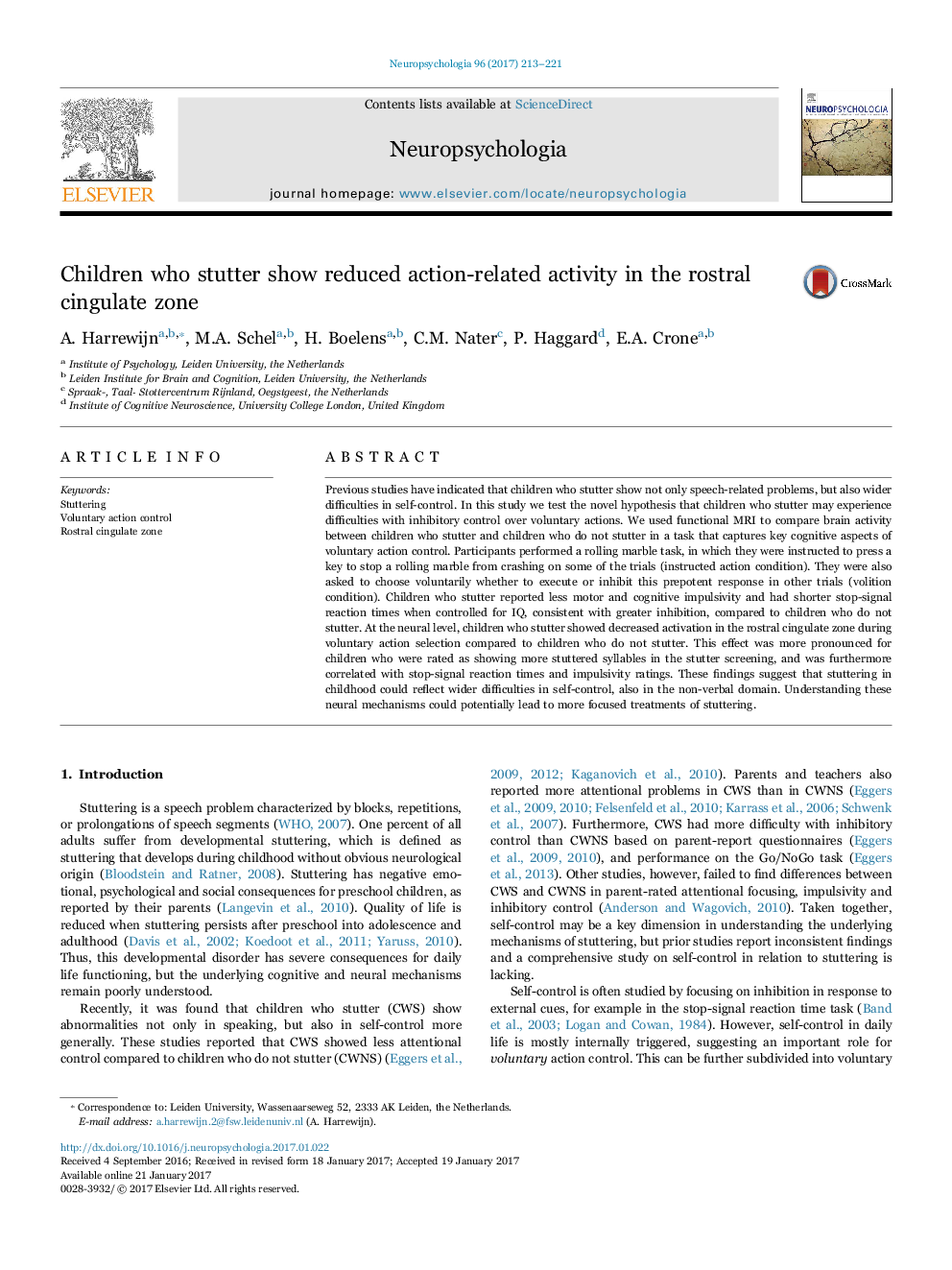ترجمه فارسی عنوان مقاله
کودکانی که لکنت را نشان می دهند، فعالیت های مربوط به فعالیت را در ناحیه روسترال کینگولت کاهش می دهند
عنوان انگلیسی
Children who stutter show reduced action-related activity in the rostral cingulate zone
| کد مقاله | سال انتشار | تعداد صفحات مقاله انگلیسی |
|---|---|---|
| 122146 | 2017 | 9 صفحه PDF |
منبع

Publisher : Elsevier - Science Direct (الزویر - ساینس دایرکت)
Journal : Neuropsychologia, Volume 96, February 2017, Pages 213-221

